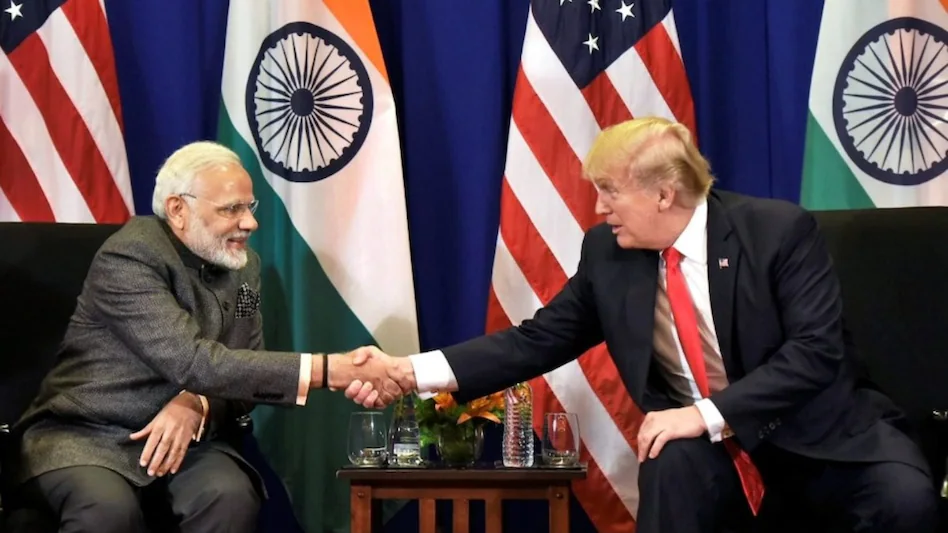As India and the United States are progressing toward a comprehensive Indo-US trade deal, the strategic and economic implications are very wide. With both the nations keen to deepen their strategic partnership amid changing global dynamics. In such a scenario, a well-negotiated trade deal could significantly influence India’s industrial advancement and regional economies. For states like Odisha, such a trade deal will bring a unique opportunity to integrate more closely with global value chains, attract investment, and boost exports.
India’s Gains from the Indo-US Trade Deal
A formal Indo-US trade agreement can have multiple benefits for India:
- Market Access & Export Boost
India can gain greater access for its goods and services in the US market, especially in textiles, pharmaceuticals, agriculture, and IT services. Thus, by eliminating tariff and non-tariff barriers, it will strengthen India’s export competitiveness and help reduce the trade deficit.
- Technology and Investment Inflows
India will benefit from US investments in tech-savvy sectors such as clean energy, defense manufacturing, AI, semiconductors, and digital infrastructure. This aligns with India’s goals under the Make in India and Startup India initiatives.
- Strategic Leverage
Deepening economic ties with the US provides India with greater geopolitical leverage, especially as it seeks to diversify trade relations away from China and assert itself in the Indo-Pacific.
However, despite these benefits, there are certain challenges of which India needs to be cautious while negotiating a trade deal with a nation like the USA.
Challenges and Trade-Offs for India:
- Pressure on Domestic Sectors: Opening markets to US goods, especially in agriculture, dairy, and retail, may impact small farmers and local MSMEs.
- Intellectual Property and Pharma: US demands for stricter IP protections could affect India’s generic medicine industry and public healthcare affordability.
- Digital Sovereignty: Disagreements over data localization and digital rules could challenge India’s regulatory autonomy.
- Investor Dispute Mechanisms: Investor-state dispute clauses may restrict India’s ability to enforce new public policies in critical sectors.
Odisha: Poised to Gain from Global Integration
Odisha, with its mineral wealth, coastal infrastructure, and emerging industrial clusters, can be a key regional beneficiary of the Indo-US trade deal.
- Mineral-Based Industrial Growth
Odisha can attract US investment in value-added metal manufacturing as it has abundant reserves of bauxite, iron ore, and chromite. Such a shift from raw material export to finished goods can generate jobs, improve revenues, and support environment friendly technologies.
- Boost to IT and Service Exports
Odisha’s growing IT ecosystem, particularly in Bhubaneswar, will gain from easier access to US clients and smoother visa regimes. This deal can also encourage US firms to invest in Odisha’s startup space in areas like edtech, fintech, and climate innovation.
- Agro and Marine Exports
Odisha’s key agricultural goods, such as rice, shrimp, turmeric, and cashew could find better markets in the US. Trade facilitation, food safety support, and reduced tariffs can also help local producers.
- Clean Energy and Urban Infrastructure
Bhubaneswar’s smart city initiatives and Odisha’s renewable energy potential (especially in solar and offshore wind) make it an ideal ground for US-backed infrastructure partnerships.
- MSME and Handicrafts Integration
Odisha’s MSMEs and handicrafts (such as silver filigree, tribal art, and handlooms) could reach global audiences through trade promotion and design support from US buyers.
Read More: https://industryodisha.com/odisha-industrial-growth-2025-strategy/
The Way Forward: A Shared Roadmap
For India:
- Negotiate balanced IP provisions and data governance frameworks
- Protect vulnerable sectors through phased liberalization and safeguards
- Push for enhanced mobility and services access for Indian professionals
For Odisha:
- Establish a Trade Facilitation and Investment Desk under IPICOL or MSME Dept.
- Focus on export infrastructure (dry ports, logistics parks, digital platforms)
- Promote sector-specific trade dialogues with US consulates, chambers, and business delegations
Conclusion
The Indo-US trade deal is more than a bilateral economic agreement. It is a chance for India to integrate more deeply into global value chains while enabling states like Odisha to carve their own niche in the international economy. With the right balance between opportunity and protection, this partnership could drive inclusive growth, technological advancement, and regional development in equal measure


